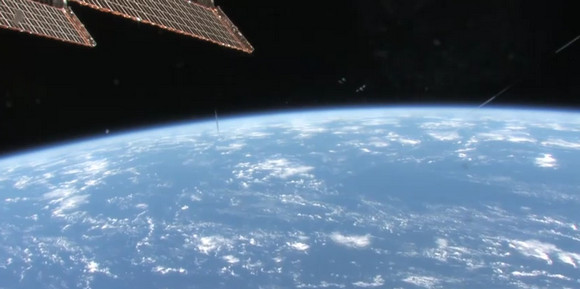 |
| First astronaut Yuri Gagarin: “The Earth is blue [...] How wonderful. It is amazing.” |
Stephen Wolfe asks, “If creation is so glorious, how ‘full of glory’ God must be?” Citing Robert Daly, he says, “If the created world was a source of beauty and delight for the Puritan poet, it was also an a fortiori argument for the beauty and generosity of its Creator and the delights He had prepared for His people….Only when compared to God and heaven do the joys of the sensible world sink to nothingness.”
Creation as an epistemic source of God’s character was an important component of early Calvinist thought. The Belgic Confession states, the “universe is before our eyes like a beautiful book in which all creatures, great and small, are as letters to make us ponder the invisible things of God: God’s eternal power and divinity.” Calvin argued that “the world was founded for this purpose, that it should be the sphere of the divine glory” and that “the very beautiful fabric of the world [is the place] in which he wishes to be seen by us.” The knowledge imparted through creation was sufficient for pre-lapsarian man to have a complete creaturely knowledge of God. But this knowledge is knowledge of God not via negativa, but through analogy. Our knowledge of God’s beauty is not univocally God’s beauty; it is his beauty as analogized ‘into’ creation. And this beauty-as-symbol communicates sufficient knowledge of God. The sufficiency of creational knowledge is an important notion to understand. We often want something more than the sufficient: we want to know God’s essence, not just mere analogy. We want to climb some chain of being and experience the divine. In our fallenness, we want to become like God (italics is the author’s; the bold face is mine).
We live in a time when “the joys of the sensible world” – and by “sensible world” I mean the world as in “the world, the flesh, and the devil” – scream at us for attention through every nook and cranny of the man-made system of communication.
Of “the God Who Is There”, we may find real knowledge in “creation”, as in Psalm 19:1-2, and Romans 1:19-20, for example. God’s character may be seen in the heavens, to be sure, and in every good thing that he has created. What Reformed writers have called “general revelation” points specifically to the God who gave us “special revelation” in the form of His Scriptures. We are “religious” creatures to be sure – but not so as to be impressed by man-made artifices such as priests and robes and incense and processions and pointy hats and gaudy Medieval cathedrals, but in the sense that “the creation-as-sign signifies the Creator”. However, “that creation is not a sign by virtue of it having some divine component with the natural. Creation is a sign of the divine by virtue of being an analogy of the divine.
I’m persuaded that heart of the difference between Roman Catholicism and Protestantism lies in what I’ll call “the character of God” – that knowing “who God is” is an inoculation against the wiles of Rome. The God Who created this universe, who both elected Israel and contended with the wickedness of its kings and people in the Old Testament, is not a God who would put into place a system like Roman Catholicism and simply say “obey”.
In the vast sweep of Christian history, it would be hard to find a culture that loved “creation” more for its ability to reveal the Creator to us than the Puritans. In this article, Stephen Wolfe writes persuasively that “Puritan poetry is full of references to the delight of creation. Puritan poets cite music, the activities of animals, the sounds of insects, birdsongs, landscapes, food, drink and more. All are means of delight, and as delight are means to knowledge of God.”
I would urge you to set aside some time to read this article, “Puritan Poetry: Creation, Delight, and Weaning from the World”.

No comments:
Post a Comment